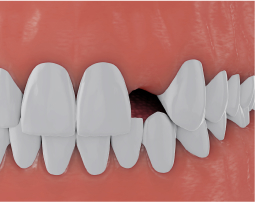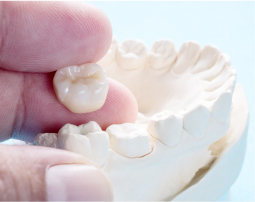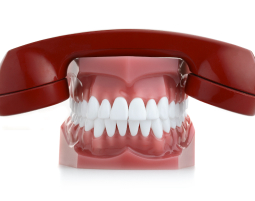Extractions & Preservations
Dental extractions may be necessary for various reasons, including extra teeth, crowded teeth, or Wisdom teeth. Dr. Williams offers comfortable solutions for dental extractions and preservation.

Extractions & Preservations
At Ascent Family Dental, we take every measure possible to restore and save your natural teeth, but there are scenarios where Dr. Williams may recommend the extraction of a tooth. A dental extraction is a straightforward process that has a number of benefits. There are also numerous solutions to preserve the extraction socket.
What Is A Dental Extraction?
A dental extraction is the removal or “pulling” of a tooth. There are numerous reasons why an adult may need a tooth extracted, including infection, crowding, decay, among others. A rotten or infected tooth may need to be removed to prevent the spreading of the damage to the jaw and surrounding teeth. In contrast, some orthodontic procedures may require the extraction of one or more teeth to accommodate the movement of others. Wisdom teeth are well-known and invasive teeth that must often be extracted to prevent crowding or damage to other teeth.
Indications You May Need A Dental Extraction
Although you may not know that you need a tooth extraction, there are some telltale signs pointing to this solution. If you experience any of the following signs, you may need a tooth removed:
- Infected teeth. Dental infections are incredibly uncomfortable. If you experience pain, swelling, redness, or even bleeding surrounding a tooth or teeth, it’s important to schedule an appointment with Dr. Williams right away. If you notice purulent fluid (pus) leaking from a swelling, this is a strong indication that you have an infection and should have it addressed immediately. If the infection has not invaded the tooth root, it’s likely that the tooth can be saved after the infection is cleared up with antibiotics and careful nursing treatment. Unfortunately, in some cases, the tooth must be removed completely.
- Damaged teeth. Damage is not only caused by trauma but also bacteria. Should you notice a large area of black decay, your tooth may need to be extracted. If the decay and damage are confined to just the tooth’s crown, there’s a good chance Dr. Williams can save your natural root and give you a prosthetic dental crown. If only the root is decayed and the crown is intact, he can perform a root canal. But, unfortunately, if both the tooth crown and root are damaged, it’s likely the tooth will require extraction.
- Crowded teeth. In some cases, dental extraction can aid in overcrowding. Before applying braces or invisible braces options, Dr. Williams may recommend removing one or more teeth. These teeth can help reduce crowding and aid in both the comfort of your bite and your smile’s aesthetics. Wisdom teeth often lead to severe overcrowding of the mouth and require removal even before they come in.
- Loose teeth. Teeth may become loose for many reasons, but regardless of the cause, if the tooth root structure is compromised, it may need to come out. If you notice any newly loose teeth, it’s a good idea to schedule an examination with Dr. Williams to determine the root cause. He may recommend extraction of the tooth if it is unstable or affecting the health of surrounding teeth.
- Impacted teeth. Impacted teeth are those, like wisdom teeth, which cannot erupt due to oral conformation complications. These teeth are blocked from breaking through the skin due to inhibitions from surrounding roots. If you experience any discomfort, swelling, or pressure in your upper or lower jaw areas, you may have an impacted tooth. Be sure to schedule an appointment with Dr. Williams to determine the cause of your pain and find relief through his proactive dental solutions.
Dental Extraction Preparation
If you have a medical condition, you may need to take extra precautions prior to the procedure. Some individuals may need to begin antibiotics prior to the procedure or may need to consult with their physician about other treatments. Be sure to notify Dr. Williams if you have any of the following conditions:
- Compromised immune system
- High blood pressure
- Diabetes
- Any heart conditions
- Kidney disease
- Liver disease
- Adrenal disease
- Hypo- or hyperthyroidism
- Joint replacements
Also, ensure you tell Dr. Williams if you are taking any medications or smoke tobacco.
Consequences Of Not Addressing Extraction Socket Sites
After the extraction of a tooth, the tooth socket should not be left without treatment. If it is, it can lead to jaw bone loss and facial collapse. Not only does this negatively impact people’s ability to chew and bite, but it also changes the aesthetic look of a person’s face.
Extraction Socket Preservation
Preservation following the extraction of a tooth is critical. At Ascent Family Dental, we offer various methods of preserving extraction site sockets. Two of the most popular solutions include filling the extraction hole with a filler material or completing a bone graft procedure.
Bone Grafting
Bone grafting is a procedure that will ensure your jaw bone remains preserved to avoid the negative consequences of not treating the extraction socket.
A small piece of bone material (either from another location from the patient, from a donor such as a cow, or a synthetic bone material) is placed within the extraction root hole during a bone graft procedure. This piece of bone promotes the patient’s own natural bone growth surrounding the graft. By creating a strong portion of new bone growth, Dr. Williams can then place a dental implant in extraction, which will function and look like a natural tooth.
Dental Extraction And Preservation Methods In Greeley, Co
At Ascent Family Dental, we make it our top priority to preserve and restore your natural teeth. When this is not an option, careful extraction of the affected tooth and preservation of the jawbone is critical to ensure a good prognosis.
Dr. Williams’ preservation methods will guarantee your jaw remains strong for years to come. Find out more about dental extractions or socket preservation by contacting our team today.
Improve your oral health with Ascent Family Dentistry
Dental Solutions For You

Are you missing a tooh?

I have a broken tooth. Help!

I want to feel confident about my smile.

I’m in pain. What do I do?

My snoring is keeping everyone awake!

I have questions about dentures. Can you help?

But I’m afraid to visit a dentist!

My gums are bleeding. Something’s not right!

